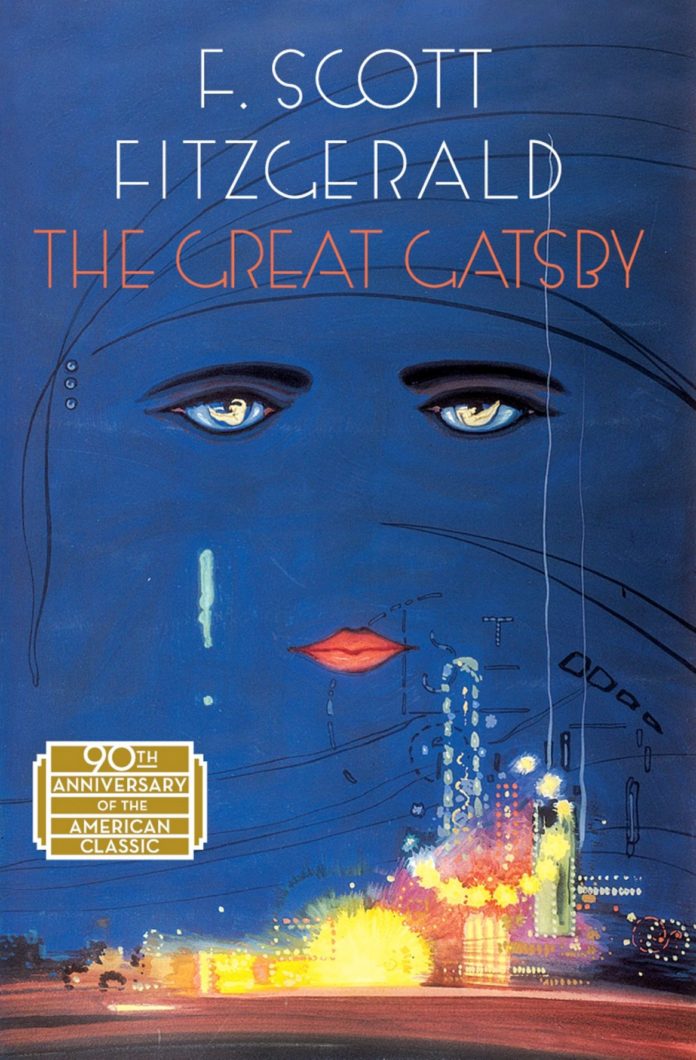Members of the Class of 2015, I salute you. Today, rather than issue the standard invitation to dream your dreams and change the world, I would like to talk to you about a book.
This year marks the hundredth anniversary of the graduation of Nick Carraway — Yale Class of 1915, narrator of F. Scott Fitzgerald’s masterpiece “The Great Gatsby.” (Wait. “Gatsby” doesn’t yet carry a trigger warning, does it? Oh, one has been requested? Dear me. I suppose I’d better talk fast.)
Nick is as keen an observer of the virtues and foibles of others as American literature presents. So I thought I’d take a few minutes to ponder whether his observations still ring true, and how they might inform your lives.
The book’s more obvious lessons undergraduates have winkled out for generations: Love drives us in strange directions. Those who seem to have everything seldom do. The pursuit of goods is greatly inferior to the pursuit of the good.
Other observations glitter with antiquity: “But young men didn’t … drift cooly out of nowhere and buy a palace on Long Island Sound.” Nick worked as a bond trader on Wall Street, and nowadays would likely be acquainted with quite a few people like that.
With a marvelous felicity of language, Nick catalogs the rootlessness and aimlessness of the educated classes of his generation: the partying, the drinking, the thoughtless and shattering romances. All of that has been laid at the feet of your generation too — and, if I am to be honest, at the feet of mine. I suspect each generation partied for the same reason: to escape the uncertain world into which adulthood was thrusting us.
My generation wants desperately to believe that we are graduating you into something of substance and goodness. But you see through our self-congratulation. You think we’re leaving you damaged goods. And Nick understood that we have to live with your judgment: “It is invariably saddening to look through new eyes at things upon which you have expended your own powers of adjustment.”
But don’t misunderstand. Although “Gatsby” is the story of a romantic rush toward tragedy, Nick’s is ultimately a story of optimism and hope. I don’t mean the sad familiar image of Jay Gatsby on his porch, gazing at “the green light at the end of Daisy’s dock,” certain he will reach it, unaware “that it was already behind him.” I mean Nick’s own attitude about life.
“Everyone suspects himself of at least one of the cardinal virtues,” he writes, “and this is mine: I am one of the few honest people that I have ever known.” Our opinions of ourselves should be preliminary. So should our opinions about others. The Nick of the opening chapter tells us how he’s “inclined to reserve all judgments”; the Nick of the final chapter has come to hate his fabulously wealthy classmate Tom Buchanan, and, probably, Tom’s wife, Daisy, as well. But it takes a great deal for Nick to come to that view.
Which leads us to what may be Nick’s most important point. When we first meet Tom, we learn that he “had been depressed by a book.” The volume in question is “The Rise of the Colored Empires.” Its real-life model was “The Rising Tide of Color Against White-World Supremacy,” published in 1920 by the eugenicist Lothrop Stoddard. And therein hangs a final cautionary tale.
Stoddard, in other respects a thoroughgoing liberal, was a leader in what is now known as “scientific racism,” but at the time was simply an outgrowth of Progressivism’s effort to place public policy on a rational rather than a sentimental footing. Stoddard’s work on race was intended to foster meritocracy. The movement in which he played so important a part led, among other things, to the rise of intelligence testing — and, ultimately, to college admissions testing.
Tom of course represents the forces of reaction, but it isn’t simply change that bothers him. And it isn’t just the “colored empires” either. It’s the sense that what he most earnestly believes and has built his life around is threatened by forces he considers less civilized, forces he fears will prove impossible to control.
Sadly, that feeling of being the lonely bearer of truth, surrounded by hostile hordes, is as common nowadays to left as to right. Everyone seems to think the other side’s dangerous empire is on the rise, and so to the barricades we must scurry. Tom Buchanan, in his ugly pigheadedness, is potentially all of us.
For me this is the largest lesson in “Gatsby”: that we always run the risk of being controlled by our fears — in particular, fears of those who threaten our views of the world. I suspect that the cardinal virtue Nick most would want us to inculcate is tolerance — the ability to meet our often disagreeable foes in the realm of civility and conversation. We’re a lot less afraid of those we come to know across our differences.
Tom Buchanan never tried. Driven by fear, he retreated, Nick tells us, into his money. That’s something else my generation messed up. We’ve done a lot of retreating. We see ideological differences as marking the boundary between the primitive and the civilized.
Your task, members of the Class of 2015, is to handle disagreement, pain and offense better than we did — and, in so doing, make Nick Carraway proud. And although we may forget to say so, the rest of us will be proud of you too.
— Stephen Carter is a Bloomberg View columnist and a law professor at Yale.






